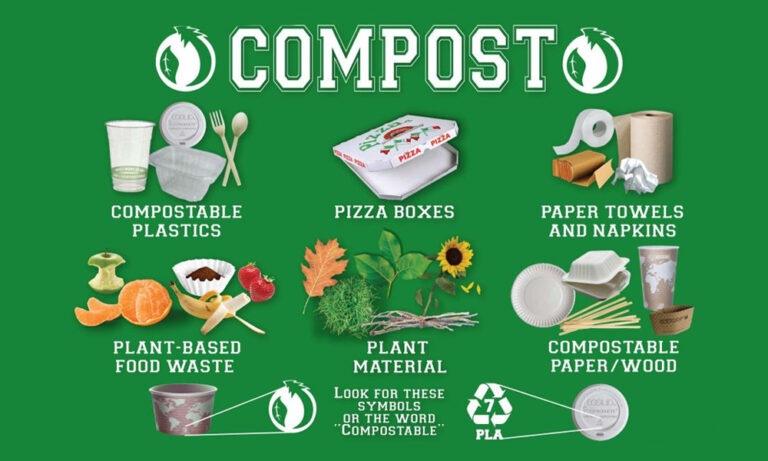The escalating environmental crisis driven by plastic pollution has spurred global innovation toward sustainable alternatives. Among the most promising solutions is the rise of compostable materials, which decompose naturally without leaving behind toxic residues. These materials are reshaping the way industries function, encouraging eco-conscious production, and enabling consumers to adopt greener habits. At the forefront of this revolution is India, a country rapidly gaining prominence for its commitment to sustainability and innovation in green materials.
With a growing number of businesses shifting toward environmentally friendly practices, Indian manufacturers of compostable raw materials have emerged as global leaders in producing versatile, biodegradable, and compostable solutions. Their work is transforming packaging, agriculture, food service, and even textiles, steering the nation—and the planet—towards a waste-free future.
Understanding Compostable Materials: A Natural Solution to Pollution
Compostable materials are derived from renewable resources like corn starch, sugarcane bagasse, wheat bran, bamboo, and other agricultural by-products. Unlike traditional plastics that linger in landfills and oceans for hundreds of years, compostable materials break down within weeks or months in industrial or home composting systems, returning nutrients to the soil.
Their growing popularity stems from a combination of environmental, legislative, and economic factors. Governments around the world, including India, are implementing stricter regulations on plastic use. At the same time, consumers are becoming more informed and vocal about their preference for sustainable packaging and products.
This perfect storm of pressure and opportunity has sparked unprecedented growth in India’s green manufacturing sector.
India’s Green Manufacturing Boom
India has always had a deep-rooted cultural reverence for nature and resource conservation. In recent years, this philosophy has intersected with technology and entrepreneurship to give rise to a new era of eco-innovation. Several Indian startups, SMEs, and large-scale manufacturers are now producing compostable raw materials that serve as viable substitutes for conventional plastic components.
The country’s vast agricultural landscape offers a steady supply of raw organic materials—corn husks, rice straw, banana fibers, and coconut shells, to name a few—which are now being re-engineered into compostable alternatives.
This resource abundance, combined with affordable labor and advanced research capabilities, gives India a significant competitive edge on the global stage. As a result, Indian manufacturers of compostable raw materials are not only catering to domestic demands but are also becoming key exporters to countries seeking sustainable alternatives for packaging, food containers, cutlery, and more.
Sectors Driving the Demand for Compostable Materials
- Packaging Industry: As e-commerce, retail, and FMCG sectors grow, there is a pressing need for sustainable packaging solutions. Compostable films, mailer bags, bubble wraps, and pouches made in India are now replacing single-use plastics across various supply chains.
- Food and Beverage: Restaurants, cafés, and delivery services are transitioning to compostable plates, bowls, cups, and cutlery. Indian manufacturers are responding to this demand with plant-based disposables that are durable, heat-resistant, and home-compostable.
- Agriculture: Compostable mulch films, seedling trays, and plant pots are transforming sustainable farming. These products naturally degrade into the soil, reducing labor costs and plastic waste in the fields.
- Healthcare and Hygiene: India is now seeing compostable sanitary napkins, diapers, and medical packaging solutions being developed for sensitive-use sectors. These innovations significantly reduce landfill load and support public health.
- Retail and Textiles: Compostable garment bags, retail carry bags, and product tags are replacing plastic counterparts, allowing fashion and textile brands to align with their sustainability goals.
Government Initiatives Supporting Compostable Alternatives
The Indian government has played an instrumental role in supporting the rise of compostable materials. With nationwide bans on single-use plastics and growing incentives for green startups, the ecosystem is conducive to sustainable innovation.
Agencies like the Bureau of Indian Standards (BIS) and the Central Pollution Control Board (CPCB) have introduced clear guidelines and certification systems for compostable products, ensuring trust and quality assurance in the market.
Furthermore, India’s focus on circular economy principles—emphasizing reuse, recycling, and regeneration—perfectly aligns with the ethos of compostable materials. Programs under the Ministry of Environment, Forest and Climate Change (MoEFCC) continue to push public-private partnerships that boost eco-conscious manufacturing.
Challenges and the Way Forward
Despite remarkable progress, compostable materials face several challenges. Limited industrial composting infrastructure and consumer awareness often hinder proper disposal. If not composted correctly, these materials can end up in landfills where they may not decompose efficiently.
Another challenge lies in the cost factor. Compostable materials, although decreasing in price with scale, are still often more expensive than their plastic alternatives. However, as technology improves and economies of scale are achieved, affordability is expected to increase significantly.
To overcome these hurdles, collaborative efforts are essential. Public education campaigns, stronger waste segregation systems, and expanded composting facilities must be prioritized.
Global Recognition and Export Potential
India’s momentum in the compostable material space has not gone unnoticed. Many international companies are sourcing sustainable materials from India to meet their corporate responsibility targets. From compostable grocery bags shipped to Europe to biodegradable packaging used by global fashion houses, Indian innovations are making a global impact.
By aligning with international environmental standards and offering high-quality, scalable products, Indian manufacturers of compostable raw materials are poised to lead the world toward a more sustainable, plastic-free future.
Final Thoughts
The rise of compostable materials marks a significant turning point in humanity’s quest for environmental sustainability. India’s contribution to this movement—through resourceful innovation, sustainable manufacturing, and cultural mindfulness—is both impressive and inspiring.
As more industries and consumers recognize the urgency of eco-conscious choices, the role of Indian manufacturers of compostable raw materials will become increasingly vital. Their dedication to creating biodegradable, planet-friendly alternatives is not just helping reduce plastic pollution—it’s building the foundation for a cleaner, greener, and waste-free world.

